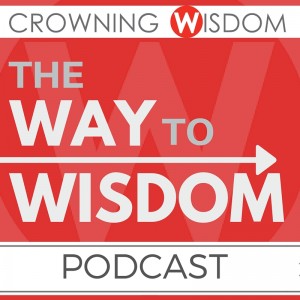I have many friends with stories of pursuing their dream of business ownership. Many of those stories portray success and accomplishment, inspiring onlookers to follow their own dreams and entrepreneurial spirits. Others, however, are stories of loss, betrayal, and bitter disappointment. Some have lost their business, been thrust into uncontrollable debt, or found themselves in prison for illegal activities their partners conducted unbeknownst to them. These stories can be terrifying and make us ask, “Is there any wisdom for choosing a partner that will protect my investment and ensure the greatest opportunity for success?”
Of course, there is risk. Starting a business takes risk– everyone knows that the risk-takers are usually the rain-makers, but some risks may not be worth taking in the long run– like choosing a poor fit to partner with in your new venture. Another term for this kind of partnership is yoking.
Who will you “yoke” yourself to when attempting a big venture?

If you have been around the church for a while, you have probably heard the New Testament caution, “Do not be yoked with an unbeliever” (2 Cor 6:14), which is most often applied in the context of dating and marriage. That is HUGE and I cannot underscore enough the importance of this in the context of personal relationships, but I believe this has a much broader application than most Christians know or practice.
Yoking is an agricultural term which probably made more sense to readers in first century Corinth than it does to most of us today. A yoke is the wooden beam placed on two animals (oxen primarily) to help them pull together and maximize their combined power, specifically when plowing or pulling something heavy. Occasionally, other animals could be yoked, but it was not a good idea to yoke unlike animals.
God told Moses to instruct the Israelites,
“Do not plow with and ox and a donkey yoked together.” Deut 22:10 (NIV)
But WHY?

Yoking strong animals was the primary means of accomplishing work that required more than simple manpower. The yoked pair moved together, and if paired properly, pulled together with balanced effort and effect. The work was split equally and the risks of injury were reduced. But the benefits of yoking decreased when animals were mismatched.
Although many other animals work hard and can be yoked (horses, mules, donkeys, water buffalo) it was not good to yoke a stronger animal with a weaker one. This risked injury to both- the stronger had to work harder to compensate for the weaker animal, and the weaker was incapable of working up to the level of the stronger. That is why God in His wisdom cautioned the Israelites against this practice- He created the animals and knew how to best leverage their strengths without causing harm.
Another complication that arose from unequal yoking was in the direction of pull- the stronger animal undoubtably would influence the direction of the pair, and the weaker would be unable to apply an effective resistance to keep them on course. Regardless of discipline or motivation, the weaker eventually succumbs to the stronger.

You can probably already see many parallels as we apply this principle to our personal and professional relationships.
We must be wise in our choice to partner with others. We must consider the practical aspects of yoking, or binding yourself to another person, whether it is in marriage, a legal contract, or business partnership– the yoke has the potential to benefit you both and help you accomplish more than you could do alone, BUT when poorly paired, can hurt both you and the work you seek to accomplish.
A few questions you can ask yourself before being yoked personally or professionally:
1) Are we in agreement in our faith? (Does this person also have faith in Christ and operate from a place of submission to Him in all areas of his /her life?)
2) Are we a good match in strength, abilities, and determination? (This does not mean you need to be EQUAL in these areas, but it stresses that you must not be OPPOSITE in these areas! If you are not in many way similar or complimentary to one another, you may eventually be working AGAINST one another! This is where emotional, spiritual, or financial injury can occur.)
3) Do we want the same things? (This too is HUGE, because if you are not both clear on your end goal or the overall mission, again, you will not work well together and will pull in different directions.)
You can easily imagine how these differences play themselves out in marriage, especially in parenting.
With business partnerships, it is more difficult to imagine the many ways that things can go awry. Business involves lots of risk and lots of hard work.
But when you are working together and for the benefit of one another, your chances of a successful business, partnership, or fulfilling marriage are improved exponentially! And YOUR story can be one that inspires the rest of us to follow our own dreams, even taking a few risks that are worth taking!
“Two are better than one, because they have a good return for their work: If one falls down, his friend can help him up. But pity the man who has no one to help him up!” Ecclesiastes 4:9-10



